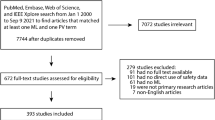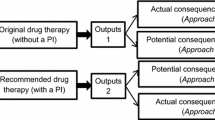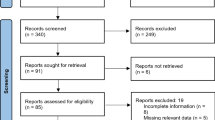Zusammenfassung
Im Durchschnitt dauert der Markteintritt eines neuen Medikaments 10–15 Jahre. Dabei entstehen durchschnittlich Kosten von 1,5– 2,0 Mrd. US-Dollar für ein pharmazeutisches Unternehmen (Harrer S, Shah P, Antony B, Hu J. Artificial intelligence for clinical trial design. Trends in pharmacological sciences. 2019; 40(8): 577–579). Eine der größten Herausforderungen der Arzneimittelentwicklung ist die hohe Misserfolgsquote bei klinischen Studien (Harrer S, Shah P, Antony B, Hu J. Artificial intelligence for clinical trial design. Trends in pharmacological sciences. 2019; 40(8): 577–579). Einer der Schlüsselfaktoren für das Scheitern einer klinischen Studie ist die Auswahl einer geeigneten Patientenkohorte. Wie kann der Einsatz künstlicher Intelligenz (KI) die Patientenselektion unterstützen?
Access this chapter
Tax calculation will be finalised at checkout
Purchases are for personal use only
Similar content being viewed by others
Literatur
Harrer S, Shah P, Antony B, Hu J. Artificial intelligence for clinical trial design. Trends in pharmacological sciences. 2019;40(8):577–9.
Berndt ER, Nass D, Kleinrock M, Aitken M. Decline in economic returns from new drugs raises questions about sustaining innovations. Health Affairs. 2015;34(2):245–52
Scannell JW, Blanckley A, Boldon H, Warrington B. Diagnosing the decline in pharmaceutical R&D efficiency. Nature Reviews Drug Discovery. 2012;11(3):191–200.
Stanski NL, Wong HR. Prognostic and predictive enrichment in sepsis. Nature Reviews Nephrology. 2020;16(1):20–31.
Singh A, Thakur N, Sharma A, editors. A review of supervised machine learning algorithms. 2016 3rd International Conference on Computing for Sustainable Global Development (INDIACom); 2016: Ieee.
Beacher FDD, Mujica-Parodi LRR, Gupta S, Ancora LAA. Machine Learning Predicts Outcomes of Phase III Clinical Trials for Prostate Cancer. Algorithms. 2021;14(5):147.
Author information
Authors and Affiliations
Corresponding author
Editor information
Editors and Affiliations
Rights and permissions
Copyright information
© 2023 Der/die Autor(en), exklusiv lizenziert an Springer Fachmedien Wiesbaden GmbH, ein Teil von Springer Nature
About this chapter
Cite this chapter
Koß, J. (2023). Predictive Enrichment: Einsatz in klinischen Studien. In: Bohnet-Joschko, S., Pilgrim, K. (eds) Handbuch Digitale Gesundheitswirtschaft . Springer Gabler, Wiesbaden. https://doi.org/10.1007/978-3-658-41781-9_16
Download citation
DOI: https://doi.org/10.1007/978-3-658-41781-9_16
Published:
Publisher Name: Springer Gabler, Wiesbaden
Print ISBN: 978-3-658-41780-2
Online ISBN: 978-3-658-41781-9
eBook Packages: Business and Economics (German Language)




